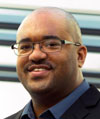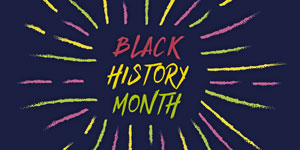
|
Design, Technology , and Engineering benefitting individuals
with disabilities and older adults in the local community |
February 6, 2023 |
|
|
|
|

Perspectives is the newsletter of the
Stanford course,
Perspectives in Assistive Technology.
Week 5 Class Sessions
This newsletter issue describes the Week 5's class
sessions.
|
Perspectives in Assistive
Technology is a Winter Quarter Stanford course - entering its
seventeenth year - that explores the design, development, and use of
assistive technology that benefits people with disabilities and older adults.
It consists of semi-weekly in-person discussions; lectures by
notable professionals, clinicians, and assistive technology users; a field
trip to an accessible inclusive playground; an Assistive Technology
Faire; and student project presentations and demonstrations.
Course website. |
Week 5
Course News

Guest Lecturer
Schedule - For more information about each presenter and their
topic, browse to the course lecture schedule
webpage. Community members are welcome to attend class sessions on campus.
Maps and direcrions. Stanford strongly
recomends masking in classrooms. There will not be a concurrent Zoom
broadcast. |
Week 5 In-person Class Sessions
|
Tuesday, February 7th at 4:30pm
PST
|

|
Issues of Human
Interface Design
Gary M. Berke, MS, CP,
FAAOP
Stanford Medical
Center |
Abstract: Gary will present challenges of human
interface design, using prosthetic limbs as the springboard for
discussion.
Biosketch: Gary M. Berke is a prosthetist
and an Adjunct Clinical Associate Professor in
Stanford's Department of Orthopaedic
Surgery as well as the owner of Berke Prosthetics and Orthotics in
San Mateo. He is also the Chief Clinical Officer for
Medical Creations in Denver, a start up in
the prosthetic space. He has worked and lectured both nationally and
internationally on prosthetic care and has authored multiple publications. He
has a keen interest in investigating cost effective technologies that enhance
the lives of those who use prostheses and orthoses daily. |
|
Thursday, February 9th at
4:30pm PST
|

|
Assistive
Robotics
Monroe Kennedy III, PhD
Assistant Professor of Mechanical Engineering and,
by courtesy, of Computer Science - Stanford University |
Abstract: The development of Assistive Technology
benefits from the contributions of many areas of study. Engineering of physical
devices plays a crucial role in meeting the needs of the user and improving the
human experience. There are many user needs however, that would greatly benefit
from systems capable of not only performing passively, but also from devices
that can take action to directly help the user. The question becomes "How can
an assistive device capable of taking action, determine the best action to
take, in order to help the user at a given moment?". This question leads to the
field of Robotics, which is the development of 'thinking' machines. While the
term 'thinking' here is used very broadly, it can be simplified to the ability
to observe a scenario (perception), 'think' or plan about what action to take
(this could range from a simple feedback control principle to a machine
learning model), then perform some action on the world to change the scenario
in some way. Assistive Robotics is the field of study of applying all the
advancements of robotics to assistive technology solutions that would benefit
from 'thinking' devices. In this talk, I will highlight basic principles of
'thinking' machines and discuss the application of these principles to
assistive technology with a primary focus on work performed in the Stanford
Assistive Robotics and Manipulation
Laboratory (ARMLab).
Biosketch: Monroe Kennedy III received his
PhD in Mechanical Engineering and Applied Mechanics, and a Masters in Robotics
from the University of Pennsylvania where he was a recipient of both the NSF
and GEM graduate research fellowships. His area of expertise is in robotics,
specifically the development of theoretical and experimental approaches to
perform control and estimation for robotic systems, in particular, robotic
manipulation and human-robot collaborative tasks. He applies expertise in
dynamical systems analysis, control theory (classical, non-linear, and robust
control), state estimation and prediction, motion planning, vision for robotic
autonomy, and machine learning.
Monroe is the director of the Assistive Robotics and
Manipulation Lab (ARMLab) whose broad
research objective is to develop technology that improves everyday life by
anticipating and acting on the needs of human counterparts. ARMLab specializes
in developing intelligent robotic systems that can perceive and model
environments, humans and tasks and leverage these models to predict system
processes and understand their assistive role. ARMLab focuses heavily on both
the analytical and experimental components of assistive technology design.
While the application area domain is autonomous assistive technology, the
primary focus is robotic assistants (mobile manipulators and humanoids) with
the goal of deployment for service tasks that may be highly dynamic and require
dexterity, situational awareness, and human-robot
collaboration. |
Upcoming In-person Class Sessions
Last Call for Assistive Technology Faire
Vendors

You are invited to participate
in the Assistive Technology Faire - This eleventh annual
course event is scheduled for Tuesday, February 28th and will provide an
opportunity for students and community members to get an up-close look at a
variety of assistive technology devices and learn about available services.
Users of assistive technology products as well as small companies
and agencies serving individuals with disabilities and older adults are
encouraged to join in on this event. Browse to the Call
for Assistive Technology Faire Participants webpage for more information
and contact me to register as a vendor.
Eleven vendors have
committed to participate this coming year. Here is the
line up and
slides from last year's virtual
Faire.
|
Please contact me with your ideas, questions, comments,
and project suggestions - or just to say hello. Please continue to stay safe
& healthy.
Dave Jaffe - Course Instructor
|

To unsubscribe from this newsletter, please email
Dave. |
|



















